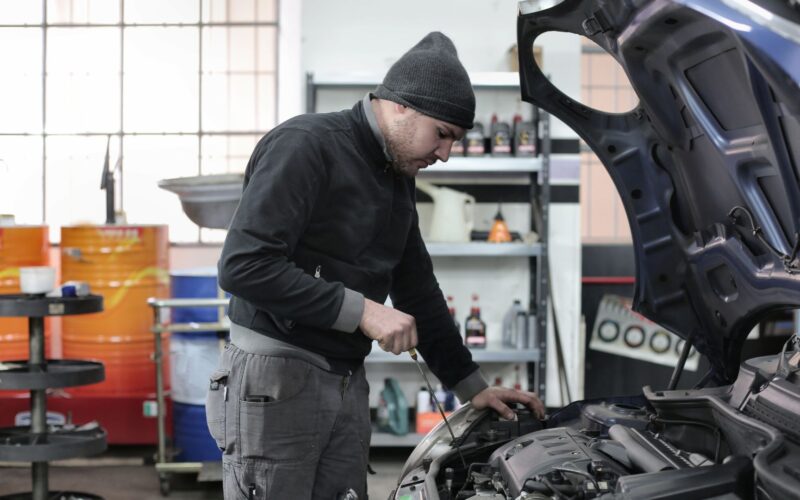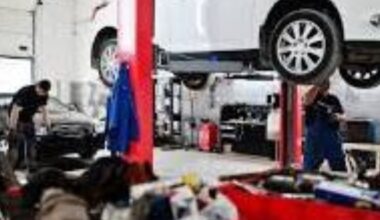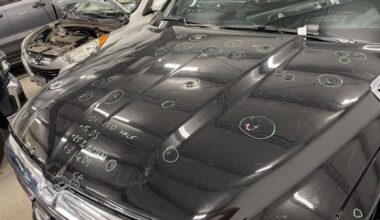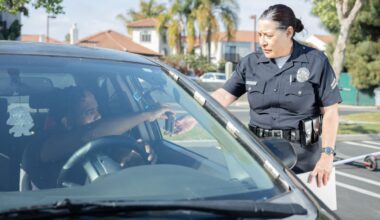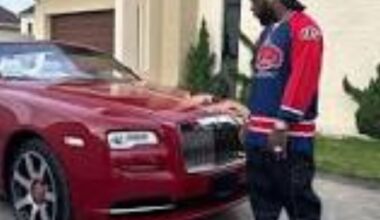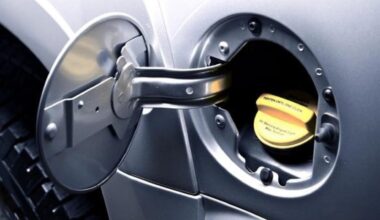When your car makes noise when turning, it can cause concern. These noises may vary from squeaking and squealing to grinding and clicking sounds.
Understanding the possible reasons behind these noises is essential for diagnosing and resolving the issue effectively.
Here are nine (9) common reasons why your car makes noise when turning, along with solutions to address them:
Car Makes Noise when Turning
1. Worn Out or Faulty Steering Components:
Worn-out or damaged steering components such as tie rod ends, ball joints, or bushings can cause clunking or knocking noises when turning. These components are essential for maintaining stability and control while steering.
Solution: Inspect the steering components for signs of wear or damage and replace them if necessary. Regular maintenance and timely replacement of worn parts can prevent noise issues and ensure safe handling.
2. Low Power Steering Fluid:
Insufficient power steering fluid levels can lead to noisy steering, as the power steering pump struggles to operate without adequate lubrication. This can result in whining or groaning sounds, especially when turning the steering wheel.
Solution: Check the power steering fluid reservoir and top up if the level is low. Ensure you use the manufacturer-recommended fluid type. If the fluid levels consistently drop, inspect the system for leaks and repair as needed.
3. Worn Out Wheel Bearings:
Worn-out or damaged wheel bearings can produce a humming or grinding noise, particularly during turns. Wheel bearings facilitate smooth wheel rotation and are crucial for vehicle stability.
Solution: Replace worn-out wheel bearings promptly to prevent further damage to the wheel hub assembly and ensure safe driving. Proper installation and maintenance of wheel bearings are essential for minimizing noise issues.
4. Faulty CV Joints:
Constant Velocity (CV) joints are responsible for transferring power from the transmission to the wheels while allowing for smooth rotation during turns. When CV joints wear out or become damaged, they may produce clicking or popping noises, especially when turning sharply.
Solution: Inspect the CV joints for signs of damage or excessive wear, such as torn boots or visible damage. Replace worn CV joints or damaged CV boots to prevent further issues and maintain drivability.
5. Loose or Damaged Suspension Components:
Loose or damaged suspension components, including control arms, sway bar links, or struts, can cause knocking or clunking noises when turning. These components play a crucial role in supporting the vehicle’s weight and providing a smooth ride.
Solution: Conduct a thorough inspection of the suspension system and tighten or replace any loose or damaged components. Check for signs of wear, such as worn bushings or deteriorating rubber mounts. Regular suspension maintenance and alignment checks can help prevent noise-related issues and ensure optimal vehicle performance.
6. Unbalanced or Worn Out Tires:
Uneven tire wear or imbalanced tires can lead to noise issues, particularly when turning. Worn-out or improperly inflated tires can also contribute to noise and vibration while driving.
Solution: Rotate and balance the tires regularly to ensure even wear and proper alignment. Inspect the tires for signs of uneven wear patterns, bulges, or cuts, and replace them if necessary. Additionally, maintaining recommended tire pressure helps minimize noise and vibration issues, providing a smoother and quieter driving experience.
7. Dry or Worn Out Steering Rack:
A dry or worn-out steering rack can result in a creaking or groaning noise when turning the steering wheel. Lack of lubrication or excessive wear on the steering rack components can lead to noise issues.
Solution: Lubricate the steering rack components with the manufacturer-recommended lubricant to reduce friction and noise. Ensure that all pivot points and bushings are properly lubricated to prevent premature wear. If the steering rack is severely worn or damaged, replacement may be necessary to resolve the issue and restore smooth steering operation.
8. Damaged Brake Components:
Worn-out brake pads, damaged brake rotors, or loose brake calipers can produce grinding or scraping noises, especially when turning. Brake-related issues should be addressed promptly to ensure safe braking performance.
Solution: Inspect the brake components for signs of wear or damage, including worn brake pads, scored rotors, or loose caliper bolts. Replace any worn-out parts and perform a brake system inspection to ensure proper operation. Regular brake maintenance, including brake pad replacement and rotor resurfacing, helps prevent noise-related issues and ensures safe and reliable braking performance.
9. Improperly Lubricated Suspension Bushings:
Suspension bushings that are dry or improperly lubricated can cause squeaking or creaking noises when the suspension articulates during turns. Lack of lubrication can lead to increased friction and noise issues.
Solution: Apply silicone-based lubricant or grease to the suspension bushings to reduce friction and eliminate noise. Ensure that all suspension components are properly lubricated during routine maintenance inspections. Regular lubrication of suspension components helps maintain smooth operation and minimizes noise-related issues, providing a quieter and more comfortable driving experience.
Why Does my Car make a Creaking Noise When I Turn?
FAQs
1. Why does my car make a clicking noise when turning?
A clicking noise when turning can indicate issues with the CV joints, which may be worn out or damaged. Additionally, worn steering components or faulty wheel bearings can also produce clicking sounds during turns.
2. What should I do if my car makes a grinding noise when turning?
A grinding noise when turning may be caused by worn-out wheel bearings, damaged brake components, or insufficient power steering fluid. It’s crucial to have the vehicle inspected by a mechanic to diagnose and address the underlying issue promptly.
3. Can tire problems cause noise when turning?
Yes, tire-related issues such as uneven wear, imbalanced tires, or worn-out tread can contribute to noise when turning. Regular tire maintenance, including rotation, balancing, and replacement as needed, helps minimize noise-related issues and ensures safe driving.
Conclusion
When turning, car noises can indicate various underlying issues related to steering, suspension, brakes, or tires. By understanding the common reasons behind these noises and implementing the appropriate solutions, drivers can maintain vehicle safety and performance.
Regular vehicle maintenance, timely repairs, and professional inspection are essential for identifying and addressing noise-related issues promptly. If unusual noises persist, it’s advisable to consult a qualified mechanic for a thorough diagnosis and resolution of the problem.

